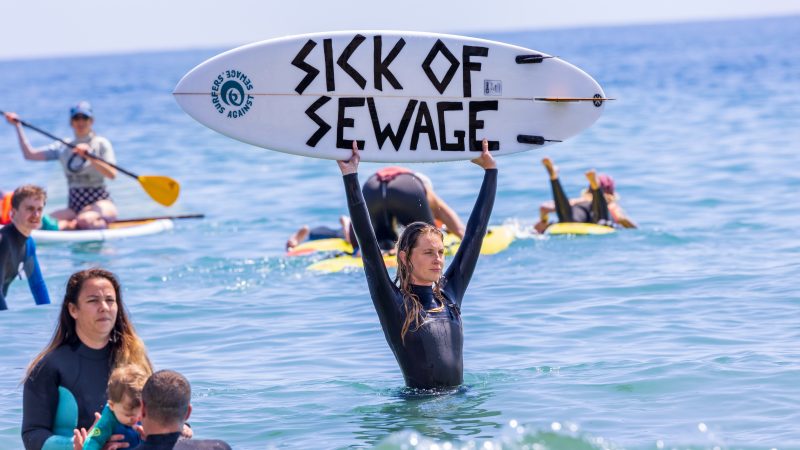
Water regulation has been on a collision course with politics for some time. Years of rising bills, sewage discharges and crumbling infrastructure steadily eroded public trust. But it was the drought of 2022 – much like the one we’re experiencing again this summer – that made the crisis impossible to ignore.
Sewage in rivers, hosepipe bans, rising costs. By the 2024 general election, water had become a defining wedge issue, particularly in coastal constituencies where voters punished failure they could see and smell.
I spent just under two years at Ofwat, working with dedicated, capable people doing their best under enormous pressure. But the system around them wasn’t built for the challenges we now face. Fragmented responsibilities, outdated planning cycles and weak levers for long-term investment have made meaningful progress too slow for too long.
The creation of RAPID for example – a joint initiative between Ofwat, the Environment Agency and the Drinking Water Inspectorate – was an important recognition that things had to improve. It aimed to fast-track large-scale water infrastructure, like reservoirs, by encouraging regulators to work together. But RAPID could only go so far in a system that pulled in different directions.
The Cunliffe Review is a turning point
This week’s Cunliffe Review is an important turning point. Replacing Ofwat with an integrated regulator, devolving planning powers to nine regional water authorities and strengthening consumer protections are not small tweaks – they represent a radical reset of regulation.
The political context matters as much as the policy detail. In launching the reforms, the Prime Minister promised to “end the chaos of the past and deliver for working people.” It’s a clear signal beyond just restoring public trust and reshaping economic regulation.
READ MORE: ‘Suspending dissenting voices is a sign of weakness, not a show of strength’
It’s also a way for Labour to potentially win over voters from Reform – More in Common polling showed 73% of Reform voters and 75% of Green voters rate reducing pollution as a top priority. So the tone from government is deliberately talking directly to the public. But changing structure alone won’t deliver. Labour must now turn reform into results. That means:
- Fixing governance – with clear, joined-up accountability across water, housing and environment
- Reforming planning – so water infrastructure is built in from the start
- Unlocking finance – to give investors the clarity and confidence to back long-term infrastructure
This is about delivery, not just design. And the public will judge it on what changes – not what’s renamed. It’s about unlocking growth too. New towns, housing delivery and regional investment all depend on water systems that are ready and resilient. Right now, they aren’t.
Subscribe here to our daily newsletter roundup of all things Labour – and follow us on Bluesky, WhatsApp, Threads, X or Facebook.
At WPI Strategy, we’ve been looking at exactly these issues in recent research – engaging with regulators, planners, housing and water industry experts and investors to understand how to enable infrastructure, not delay it. There are clear options for smarter planning alignment, targeted funding models and stronger leadership on strategic delivery.
Politics always rules the day. With water becoming such a defining wedge issue, it was always going to be the political landscape, not process, that forced change of the water regulator. Labour now has a moment to show it gets voters’ concerns – and to prove that serious reform can lead to visible results.
- SHARE: If you have anything to share that we should be looking into or publishing about this story – or any other topic involving Labour– contact us (strictly anonymously if you wish) at [email protected].
- SUBSCRIBE: Sign up to LabourList’s morning email here for the best briefing on everything Labour, every weekday morning.
- DONATE: If you value our work, please chip in a few pounds a week and become one of our supporters, helping sustain and expand our coverage.
- PARTNER: If you or your organisation might be interested in partnering with us on sponsored events or projects, email [email protected].
- ADVERTISE: If your organisation would like to advertise or run sponsored pieces on LabourList‘s daily newsletter or website, contact our exclusive ad partners Total Politics at [email protected].




More from LabourList
‘Unity or division’: Starmer’s message to voters in Gorton and Denton
Almost half of Labour members oppose plans to restrict jury trials, poll finds
‘How Labour can finally fix Britain’s 5G problem’